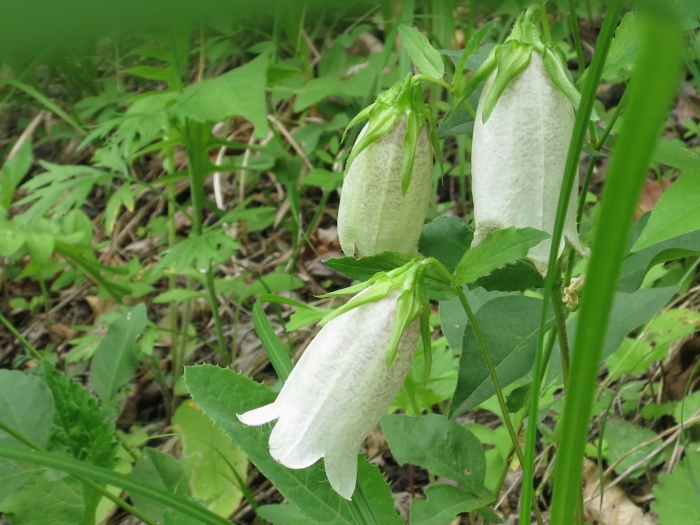Spotted Bellflower
(Campanula punctata)
Spotted Bellflower (Campanula punctata)
/
/

Repina Tatyana
CC BY 4.0
Image By:
Repina Tatyana
Recorded By:
Copyright:
CC BY 4.0
Copyright Notice:
Photo by: Repina Tatyana | License Type: CC BY 4.0 | License URL: http://creativecommons.org/licenses/by/4.0/ | Rights Holder: Repina Tatyana | Publisher: iNaturalist | Date Created: 2019-06-12T09:33:34-07:00 |


































Estimated Native Range
Summary
Campanula punctata, commonly known as Spotted Bellflower, is a herbaceous perennial that is native to open woodlands and grassy slopes in East Asia, including Japan, Korea, China, and Siberia. It typically grows to a height of 30–100 cm (0.98–3.28 ft). The plant features lance-shaped leaves and stems that die back at the end of the blooming season. Spotted Bellflower is known for its nodding, bell-shaped flowers that bloom from June to August. The flowers are tubular, with colors ranging from white to pale pink and distinctive red spots inside, along with hairs. These flowers are hermaphroditic, containing both male (stamen) and female (pistil) reproductive organs, and are particularly attractive to pollinators.
The Spotted Bellflower is valued for its ornamental flowers and edible qualities, as both flowers and leaves have a sweet taste and can be used in salads. It is suitable for border planting, cottage gardens, and naturalized areas. The plant thrives in fertile, sandy soil that retains moisture and can grow in acid, neutral, and alkaline soils. It prefers full sun to partial shade, with some protection from the intense afternoon sun in hotter climates. While it is not particularly drought-tolerant, it does require well-drained soil to prevent root rot. Gardeners should be aware that Campanula punctata can spread aggressively by rhizomes and self-seeding, potentially becoming invasive outside its native range. It is also susceptible to snails and slugs.CC BY-SA 4.0
The Spotted Bellflower is valued for its ornamental flowers and edible qualities, as both flowers and leaves have a sweet taste and can be used in salads. It is suitable for border planting, cottage gardens, and naturalized areas. The plant thrives in fertile, sandy soil that retains moisture and can grow in acid, neutral, and alkaline soils. It prefers full sun to partial shade, with some protection from the intense afternoon sun in hotter climates. While it is not particularly drought-tolerant, it does require well-drained soil to prevent root rot. Gardeners should be aware that Campanula punctata can spread aggressively by rhizomes and self-seeding, potentially becoming invasive outside its native range. It is also susceptible to snails and slugs.CC BY-SA 4.0
Plant Description
- Plant Type: Herb
- Height: 1-2 feet
- Width: 1-1.5 feet
- Growth Rate: Rapid
- Flower Color: White, Pink
- Flowering Season: Summer
- Leaf Retention: Deciduous
Growth Requirements
- Sun: Full Sun, Part Shade
- Water: Medium
- Drainage: Slow, Medium
Common Uses
Bank Stabilization, Bee Garden, Bird Garden, Border Plant, Butterfly Garden, Deer Resistant, Drought Tolerant, Edible*Disclaimer: Easyscape's listed plant edibility is for informational use. Always verify the safety and proper identification of any plant before consumption., Groundcover, Hummingbird Garden, Low Maintenance, Potted Plant, Rock Garden, Showy Flowers
Natural Habitat
native to open woodlands and grassy slopes in East Asia, including Japan, Korea, China, and Siberia
Other Names
Common Names: Punktierte Glockenblume, Prickklocka, Hotaru-Bukuro, Zi Ban Feng Ling Cao
Scientific Names: , Campanula punctata, Campanula violaefolia,
GBIF Accepted Name: Campanula punctata Lam.